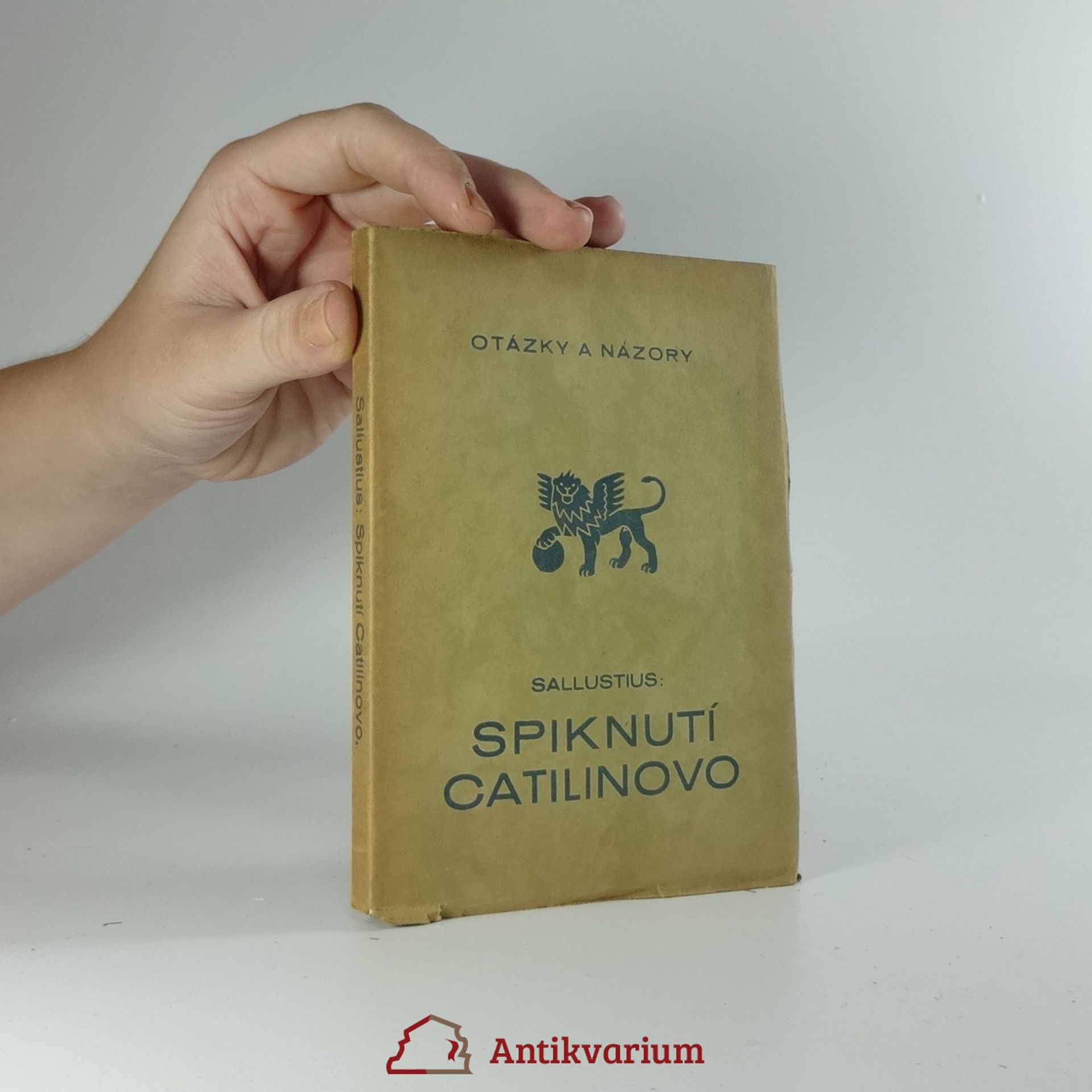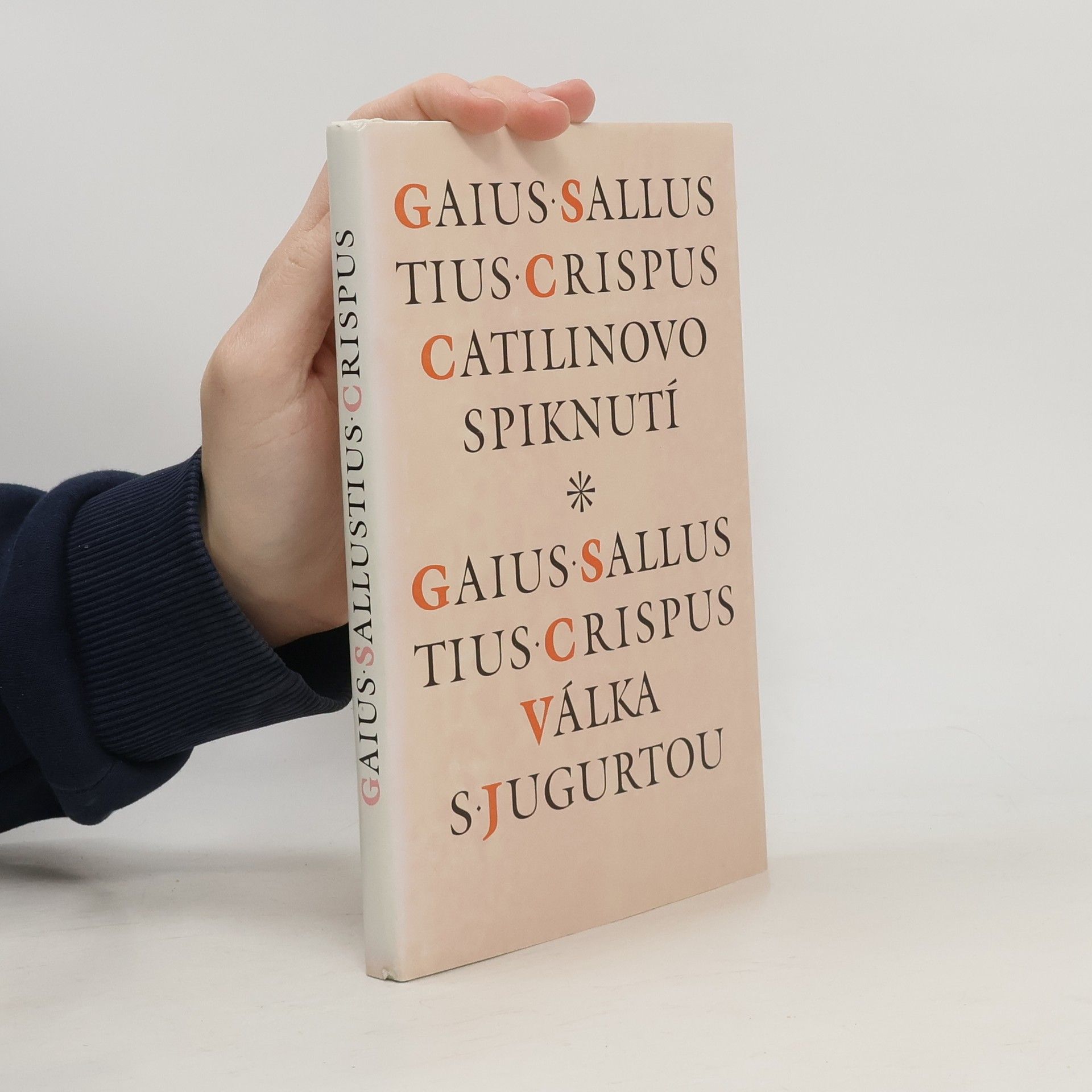Gaius Sallustius Crispus Knihy






Obě drobná dílka římského politika a dějepisce z konce republiky kreslí výstižně dvě důležitá údobí z dějin starého Říma. Ve spisku "Katilinovo spiknutí" se Sallustius snaží ospravedlnit Caesarovu politiku a zároveň polemizuje s Ciceronem, který ve svých řečích líčíval Katilinovysnahy o svržení vlády jakožto hrůzostrašné nebezpečí hrozící celému římskému státu. V barvitém, přímo dobrodružném vyprávění "Války s Jugurthou" prožíváme s římskými kolonizátory urputné boje o znovunabytí svrchovanosti nad severoafrickou provincií Numidií, prostírající se na území dnešního Alžírska. Římští politikové a vojevůdci i afričtí králové jsou zde vykresleni v celé své proradnosti, úplatnosti a zbabělství a jen vzácně se mezi nimi vyskytne pevný a čestný charakter. Příhody z dobývání bohatých měst, osamělých oáz v liduprázdné poušti, ze ztékání nepřístupných skalních pevností i zajímavé subjektivní úvahy, jimiž autor komentuje soudobé politické události, činí ze Sallustiova díla poutavou a poučnou četbu i pro ty, kdo neznají blíže římské dějiny.
Obě drobná dílka římského politika a dějepisce z konce republiky kreslí výstižně dvě důležitá údobí z dějin starého Říma. Ve spisku "Katilinovo spiknutí" se Sallustius snaží ospravedlnit Caesarovu politiku a zároveň polemizuje s Ciceronem, který ve svých řečích líčíval Katilinovysnahy o svržení vlády jakožto hrůzostrašné nebezpečí hrozící celému římskému státu. V barvitém, přímo dobrodružném vyprávění "Války s Jugurthou" prožíváme s římskými kolonizátory urputné boje o znovunabytí svrchovanosti nad severoafrickou provincií Numidií, prostírající se na území dnešního Alžírska. Římští politikové a vojevůdci i afričtí králové jsou zde vykresleni v celé své proradnosti, úplatnosti a zbabělství a jen vzácně se mezi nimi vyskytne pevný a čestný charakter. Příhody z dobývání bohatých měst, osamělých oáz v liduprázdné poušti, ze ztékání nepřístupných skalních pevností i zajímavé subjektivní úvahy, jimiž autor komentuje soudobé politické události, činí ze Sallustiova díla poutavou a poučnou četbu i pro ty, kdo neznají blíže římské dějiny.
Catiline's Conspiracy, The Jugurthine War, Histories
- 236 stránek
- 9 hodin čtení
These three works exemplify the Roman historian Sallust's condemnation of the excesses of the late Republic. In the conspiracy of Catiline and the war against Jugurtha he sees moral and political corruption and the tragedy of civil strife. This new translation captures Sallust's distinctive style and considers his work as history and literature.
How to Stop a Conspiracy
- 240 stránek
- 9 hodin čtení
In 63 BC, frustrated by his failure to be elected leader of the Roman Republic, the aristocrat Catiline tried to topple its elected government. Backed by corrupt elites and poor, alienated Romans, he fled Rome while his associates plotted to burn the city and murder its leading politicians. The attempted coup culminated with the unmasking of the conspirators in the Senate, a stormy debate that led to their execution, and the defeat of Catiline and his legions in battle. In How to Stop a Conspiracy, Josiah Osgood presents a brisk, modern new translation of the definitive account of these events, Sallust's The War with Catiline. In a taut, jaw-dropping narrative, Sallust combines juicy details about Catiline and his louche associates with highly quotable moral judgments and a wrenching description of the widespread social misery they exploited. Along the way, we get unforgettable portraits of the bitter and haunted Catiline, who was sympathetic to the plight of Romans yet willing to destroy Rome; his archenemy Cicero, who thwarts the conspiracy; and Julius Caesar, who defends the conspirators and is accused of being one of them. Complete with an introduction that discusses how The War with Catiline has shaped and continues to shape our understanding of how republics live and die, this volume makes Sallust's gripping history more accessible than ever before.
The narrative explores Lucius Sergius Catilina's conspiracy to topple the Roman Republic in 63 BC, highlighting the political intrigue and societal tensions of the era. Additionally, it covers the Jugurthine War, a conflict against Jugurtha in Numidia from 112 to 106 BC, illustrating the challenges Rome faced in maintaining its power and the complexities of warfare during this tumultuous period. Together, these historical accounts provide insight into the struggles for control and the dynamics of Roman politics.
Conspiracy Of Catiline And The Jurgurthine War
Literally Translated With Explanatory Notes By The Rev. John Selby Watson
- 168 stránek
- 6 hodin čtení
Exploring pivotal events in Roman history, this work presents a literal translation of the conspiracy of Catiline and the Jurgurthine War, accompanied by explanatory notes by Rev. John Selby Watson. It delves into themes of political intrigue, corruption, and military conflict, providing insights into the social and political dynamics of ancient Rome. The annotations enhance understanding of historical context and significance, making it a valuable resource for students and enthusiasts of Roman history.
